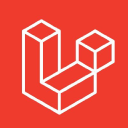On Starting A Cloud-Based CRM Software With 25% Growth YoY
My name is John Paterson and I’m the founder and CEO of Really Simple Systems, the best CRM system for small and medium-sized businesses.
Simple Systems CRM has all the features a business needs to manage and automate its sales and marketing systems. With over 1300 paying customers and many more using our Free CRM, we are the largest European vendor of Cloud CRM systems.
We’ve been growing at 25% a year since we started and keep on making the product easier to use while adding new features.

What's your backstory and how did you get into entrepreneurship?
My first experience of being an entrepreneur was when I was simultaneously offered a place at a prestigious business school and the opportunity to start my own consultancy business. I thought - I can always get back to business school but how often will I be offered the chance to start my own...
















